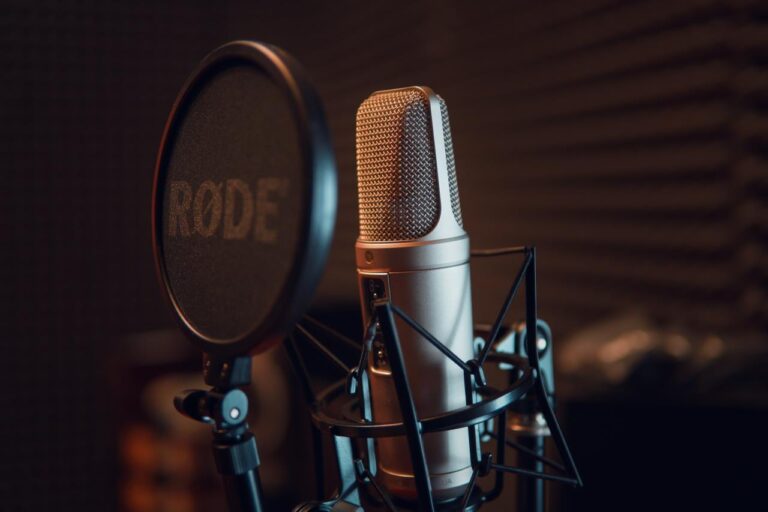On Public Radio Broadcasting Day, observed annually on January 13, the world celebrates a very special piece of technology — the radio. The day honors those who invented the radio and devised public broadcasting. It gave us a newfound appreciation for technology and its importance in our lives.
HISTORY OF PUBLIC RADIO BROADCASTING DAY
While we don’t know the exact origin of this day, we know it was founded to honor the birth of radio broadcasting.
Italian inventor and electrical engineer Guglielmo Marconi proved the possibility of radio communication when he sent and received his first radio transmission in 1895.
Private homes across the United Kingdom, Hungary, France, and some other places had conventional telephone lines broadcasting news, music, live theatre, music hall, fiction readings, religious broadcasts, etc. This system was called Electrophone in Britain, Telefon Hírmondó in Hungary, and Théâtrophone in France.
But the first sounds — voice and music signals — heard over the radio was in December 1906, when Canadian experimenter Reginald Fessenden produced about an hour of music and talk for anyone who might be listening, from Brant Rock, Massachusetts. The next few years were marked by similar experiments, but none of them could sustain continuous services.
And then, in New York City in 1910, a live opera — featuring some of the most renowned opera singers of that period — was broadcast from the Metropolitan Opera House. This became the world’s first public radio broadcast. Running on for several hours, this broadcast was unfortunately not picked by many people and was even considered unsuccessful because of the poor sound quality.
By the mid-20th century, every country had a broadcasting system that was — in most cases — run and operated by the government.
By about 1945, with the invention of the television, the radio and its influence transformed. It remained the most widely available electronic mass medium globally but it faced competition from various other mediums. In the 21st century, radio broadcasts face competitive pressure from digital satellite and internet-based services, but they seem to be holding their own and adapting to the listeners changing needs.
PUBLIC RADIO BROADCASTING DAY TIMELINE
1910: The World’s First Public Radio Broadcast
A live opera is broadcast in New York City from the Metropolitan Opera House; while reach and sound quality is low, it changes the entertainment industry forever.
1919: A Scheduled Broadcast
A place known as PCGG in Rotterdam, Netherlands, broadcasts as per a schedule, making it one of the world’s first radio programs to do so.
1920: The World’s First Commercial Radio Station
KDKA in Pittsburgh, Pennsylvania, broadcasts the return of the Harding-Cox presidential election; it is very successful, and it initiates multiple programs after this.
1922: Radio Commercials are Here
The American Telephone and Telegraph Company broadcasts their first radio commercial, a 15-minute real-estate ad offering apartments in Jackson Heights, Queens.
PUBLIC RADIO BROADCASTING DAY FAQS
What is Public Radio Broadcasting Day?
Public Radio Broadcasting Day celebrates the radio, those who helped develop this technology, and the tech itself.
Which country initiated World Radio Day?
World Radio Day is held on February 13 each year. It was founded by UNESCO in 2011, during its 36th conference.
Who created the radio?
The first radio system was patented by Italian inventor Guglielmo Marconi in 1897. However, in 1943, the U.S. Supreme Court ruled that Nicola Tesla might have been the original inventor; they made all of Marconi’s radio patents invalid and awarded the patents to Tesla.
HOW TO CELEBRATE PUBLIC RADIO BROADCASTING DAY
- Listen to the radio
- In the words of Don Williams, “Listen to the radio!” Explore programs and stations to your heart’s content.
- Pay homage to radio
- There are many ways to do this. Learn about your favorite radio personalities, read about the history of radio broadcasting, or visit your local radio station to get a sneak peek behind the scenes.
- Learn how radio can change the world
- You can start by listening to the radio drama — “War of the Worlds” — which caused immense panic in America by making the audience believe an alien invasion was imminent. Then move on to events and broadcasts of your choice.
5 FUN FACTS ABOUT RADIO BROADCASTING
- The first radio DJ
- In 1908, while on his honeymoon, American inventor Lee de Forest climbed the Eiffel Tower to broadcast a selection of music to the Parisian suburbs.
- The most consistent medium
- According to Pew Research’s 2017 report, radio has a consistent audience reach — 90% for the past nine years — as opposed to other mediums like newspapers and television (cable and network), which saw slight declines.
- A two-in-one radio broadcast
- In the 1980s, people were able to download video games from radio broadcasts; they simply recorded sounds on a cassette tape, then played it on their computers.
- Robin Williams — a radio personality
- Most radio broadcasts in “Good Morning Vietnam” were improvised by the actor himself.
- Radio saved the Eiffel Tower
- This iconic French landmark would have become scrap metal 20 years after its creation if not for its use as a radio tower during World War II; it would intercept critical military transmissions.
WHY WE LOVE PUBLIC RADIO BROADCASTING DAY
- Radio is a favorite friend
- There are radio personalities we admire, songs we love, and new types of programs to keep our interest. Radio is the gift that keeps on giving.
- Immense work went into perfecting this medium
- Years of experimentation and innovation by multiple pioneers took place. The least we can do is celebrate one special day in their memory.
- Public radio has made our lives happier
- It has given us plenty of entertainment over the years. It has also helped to make our lives more interesting.
- Source: nationaltoday
